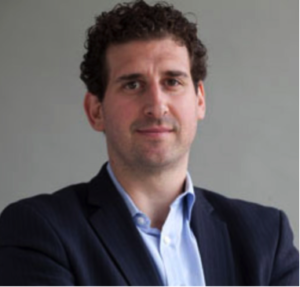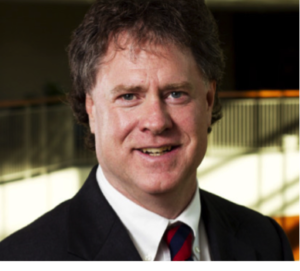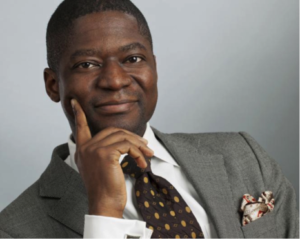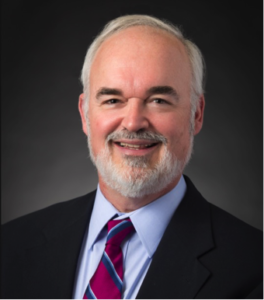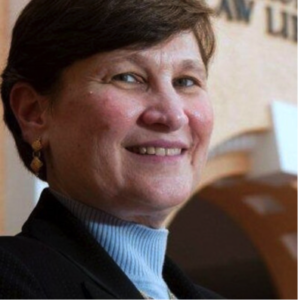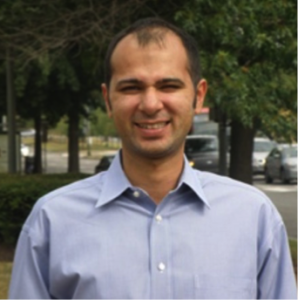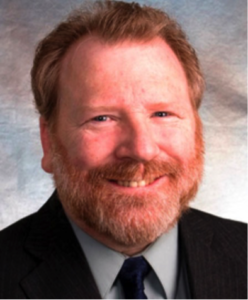2016 Symposium
In a country that incarcerates its citizens at a higher rate than any other, a country that represents only five percent of the world’s population but houses a quarter of its inmates, and that spends more on its prisons than on educating its children, it’s important to take a step back and look at which citizens we are sending to jail and why.
This symposium will explore some of the disparities within the criminal justice system and examine the crimes we as a society believe deserve punishment.
Journalists, legal practitioners and scholars will explore some of the disparities within the criminal justice system and examine the crimes we as a society believe deserve punishment during the 16th annual Vermont Law Review Symposium, “Criminal Culpability: Who Deserves Punishment?,” Friday, September 16, in Chase Community Center at Vermont Law School. The daylong symposium, free and open to the public and press, will be streamed live at vermontlaw.edu/live.
Panels:
9:45 a.m.: “Drug Reform—Does Criminal Law Disproportionately Punish Drug Offenders?”
-Mark Osler, Professor, University of St. Thomas School of Law
-Ekow N. Yankah, Professor, Cardozo School of Law
-Jeremy Haile, The Sentencing Project, former Advocacy Counsel
-Moderator: Robert Sand, Professor, Vermont Law School
Panelists discuss whether drug offenses should be criminalized and the disparity of punishments given depending on the type or amount of drug, and the varying degrees of severity depending on whether there was intent to distribute versus mere possession. The panel also covers what decriminalizing drugs would look like, using ideas such as the harm-reduction principle, and weighing the harms of criminalizing drug offenses versus the harms caused by legalizing certain drugs. If drug offenses remain criminal, panelists also consider what changes should be made to prosecution and the subsequent punishment. What role would sentencing reform play? Should sentencing shift its focus toward treatment or is there a concrete need for jail-based deterrence?
11:15 a.m.: “White Collar Crime—Does Criminal Law Go Easy on White-Collar Crime?”
-Jesse Eisinger, Columnist and Pulitzer Prize-Winning Reporter
-Peter Henning, Professor, Wayne State University Law School
-Ellen S. Podgor, Professor, Stetson University College of Law
-Moderator: Jennifer Taub, Professor, Vermont Law School
This panel explores the current landscape of federal and state white-collar offenses in modern criminal law. Panelists debate whether there is actually excessive leniency on white-collar criminals, or if the current laws are justified given perceived difficulties in convicting these individuals and enterprises. What type of societal harm does white-collar crime cause and are these actually victimless crimes as some claim? Finally, are some white-collar criminals simply “too big” to convict? What mechanisms in our legal system might allow alleged white-collar criminals to buy their innocence?
1 p.m.: Keynote Speech
-Jesse Eisinger, columnist and Pulitzer Prize-winning reporter, discusses his forthcoming book concerning white-collar crime.
2:15 p.m.: “The Future of Criminal Policy—Where Should Criminal Law Focus Its Attention?”
-William K. Black, Professor, University of Missouri, Kansas City, and University of Minnesota
-Todd Cox, Director, Criminal Justice Program, Center for American Progress
-Dan Sedon, Partner, Sedon & Ericson, P.C.
-Rena Steinzor, Professor, University of Maryland, Francis King Carey School of Law
-Moderator: Jennifer Taub, Professor, Vermont Law School
The final panel explores the future of criminal law and policy. Is the criminal justice system rigged to favor the powerful, typically white-collar offenders, to the detriment of consumers, investors, and the general public? Are enforcement policies as well as proposed statutory reforms placing barriers around white-collar convictions and how do they compare with the mass incarceration of drug offenders? Does this proportionality speak to American values about who deserves punishment? Going forward, should individual interest or societal interest be the focus of criminal law, or should the level of harm be the only factor in determining punishment? Is criminal justice something that can be bought? Are there means by which a guilty white-collar criminal can evade punishment, whereas drug offenders take the fall for the sake of deterrence?
Speakers:
Keynote: Jessie Eisinger
Jesse Eisinger is a senior reporter at ProPublica.
In April 2011, he and a colleague won the Pulitzer Prize for National Reporting for a series of stories on questionable Wall Street practices that helped make the financial crisis the worst since the Great Depression. He won the 2015 Gerald Loeb Award for commentary. He has also twice been a finalist for the Goldsmith Prize for Investigative Reporting.
Eisinger was a regular columnist for The New York Times’s Dealbook section. His work has appeared in The New York Times, The Atlantic, The NewYorker.com, The Washington Post, The Baffler, The American Prospect and on NPR and “This American Life.” Before joining ProPublica, he was the Wall Street Editor of Conde Nast Portfolio and a columnist for the Wall Street Journal, covering markets and finance.
He lives in Brooklyn with his wife, the journalist Sarah Ellison, and their daughters.
Professor Mark Osler
Professor Mark Osler’s work advocates for sentencing and clemency policies rooted in principles of human dignity. Osler’s writing on clemency, sentencing and narcotics policy has appeared in the New York Times, the Washington Post and in law journals at Harvard, Stanford, the University of Chicago, Northwestern, Georgetown, Ohio State, UNC, and Rutgers. His University of Chicago Law Review article (with Rachel Barkow) was highlighted in a lead editorial in The New York Times, in which the Times’ Editorial Board expressly embraced Barkow and Osler’s argument for clemency reform.
A former federal prosecutor, he played a role in striking down the mandatory 100-to-1 ratio between crack and powder cocaine in the federal sentencing guidelines by winning the case of Spears v. United States in the U.S. Supreme Court, with the Court ruling that judges could categorically reject that ratio. He has testified as an expert before the United States Sentencing Commission and the United States House Subcommittee on Crime, Terrorism and Homeland Security.
Osler’s 2009 book Jesus on Death Row critiqued the American death penalty through the lens of Jesus’ trial. His second book, Prosecuting Jesus is a memoir of performing the Trial of Jesus in 11 states. His current work on clemency and mercy is rooted in ideals of the Christian faith. In 2011, he founded the first law school clinic specializing in federal commutations, and he trained hundreds of pro bono lawyers for Clemency Project 2014.
The character of Professor Joe Fisher in the Samuel Goldwyn film American Violet was based on Osler, and in 2014 he was the subject of profiles in Rolling Stone and The American Prospect. He is a graduate of the College of William and Mary and Yale Law School.
Professor Ekow N. Yankah
Professor Yankah holds degrees from the University of Michigan, Columbia Law School and Oxford University. His work focuses on questions of criminal theory and punishment and political theory and particularly, questions political obligation and its interaction with justifications of punishment. His work has appeared in law review articles and peer reviewed legal theory journals and books. He has been a special invited scholar for the McArthur Foundation and in Spring 2016 was a Visiting Fellow at the Institute for Advance Studies at the University of Jerusalem.
Professor Yankah’s interests have also led him to develop expertise in voting rights and election law and he serves as the co-chair of the New York Democratic Lawyers Council, the voting rights arm of the New York Democratic party, the coordinating arm of the DNC believed to be the largest voting rights group in the country. He sits on the Board of the Innocence Project and has served on the Board of the American Constitution Society (NY Chapter). He has written for publications spanning The New York Times, The New Yorker and The Huffington Post, among others and has been a regular commentator on criminal law issues on television and radio including MSNBC, BBC and BBC International.
Jeremy Haile
For the past four years, Haile has served as federal advocacy counsel at The Sentencing Project, where his portfolio covered a range of issues, including sentencing policy, racial disparities, and mass incarceration. Previously, he served for nearly four years on Capitol Hill, where he was legislative counsel to Rep. Lloyd Doggett of Texas. He was instrumental in passing bipartisan legislation, signed into law by President Obama, to protect lawyer trust accounts that fund legal aid.
Haile has maintained a deep interest in criminal justice policy since making regular visits as a college student to prisoners outside of Abilene, Texas. After college, he worked as a case manager for the homeless in Dallas and served for two years as a Peace Corps Volunteer in Armenia.
Since joining The Sentencing Project, Haile’s advocacy has appeared regularly in the media, including The New York Times, The Washington Post, and NPR’s All Things Considered. He has given talks to numerous audiences, including students at Harvard Law School and Princeton University. He received his undergraduate degree from Abilene Christian University and his law degree from the George Washington University Law School.
Professor Peter Henning
Professor Peter Henning graduated magna cum laude in 1985 from Georgetown University Law Center, where he served as a notes and comments editor on the Georgetown Law Journal. After graduation, he taught in the College of Business Administration at Loyola Marymount University and then clerked for Chief Judge Murray M. Schwartz of the U.S. District Court for the District of Delaware. After clerking, Professor Henning was until 1991 a senior attorney in the Division of Enforcement at the U.S. Securities & Exchange Commission, where he worked on cases involving insider trading, penny stock fraud, market manipulation and accounting irregularities. He then moved to the Criminal Division of the U.S. Department of Justice, where he worked in the Fraud Section on the investigation and prosecution of bank fraud. During this time he also published articles in the Kansas Law Review, St. Louis University Law Journal and American Criminal Law Review.
In 2013, he was a Fulbright Scholar teaching at the University of Zagreb in Croatia. Professor Henning has received a number of teaching awards, including the President’s Award for Excellence in Teaching and the Donald H. Gordon Award for Excellence in Teaching.
Professor Henning’s scholarship focuses primarily on white collar crime, constitutional criminal procedure and attorney ethics. Recent articles have been published in the University of Chicago Legal Forum, Ohio State Law Journal, American Criminal Law Review and Georgetown Journal of Legal Ethics. He is the co-author of three casebooks on white collar crime, criminal law and criminal pretrial advocacy, along with student texts on criminal law, criminal procedure and white collar crime. He is the author of The Prosecution and Defense of Public Corruption: The Law and Legal Strategies, published by LexisNexis, which is the leading treatise in the field. He recently joined as a co-author of Securities Crimes and is the author of three volumes of Federal Practice and Procedure: Criminal.
He writes a regular column, “White Collar Watch,” for The New York Times DealBook and has been quoted in a number of media outlets.
Professor Ellen S. Podgor
A former deputy prosecutor and criminal defense attorney, Professor Ellen S. Podgor teaches in the areas of white-collar crime, criminal law and international criminal law. She is the co-author of numerous books including White Collar Crime in a Nutshell, Understanding International Criminal Law, Mastering Criminal Law, White Collar Crime Hornbook, and Mastering Criminal Procedure Vol. I and Vol. II. She has authored more than 70 law review articles and essays in the areas of computer crime, international criminal law, lawyer’s ethics, criminal discovery, prosecutorial discretion, corporate criminality, and other white-collar crime topics.
Professor Podgor has been interviewed on National Public Radio and been quoted in newspapers across the country, including the New York Times, Wall Street Journal, Washington Post, LA Times, National Law Journal, Chicago Tribune, and Business Week. She is the editor of the highly ranked White Collar Crime Prof Blog. She is the chair of the Advisory Committee of the NACDL White-Collar Criminal Defense College at Stetson.
In 2010, Podgor received the Robert C. Heeney Award, the highest honor given by the National Association of Criminal Defense Lawyers. She is also the recipient of the Dickerson-Brown Award for Excellence in Faculty Scholarship, the Homer & Dolly Hand Award for Excellence in Research, and the J. Ben Watkins Award for Excellence in the Legal Profession.
Attorney Dan Sedon
Dan Sedon is a partner in the law firm of Sedon & Ericson, P.C, in Chelsea, Vermont. He practices in all areas of criminal law, from grand jury appearances through jury verdict and appeal. He has tried over 100 cases to jury verdict and has obtained acquittals on behalf of clients with charges ranging from Murder to Illegal Possession of an Alligator. In addition, Mr. Sedon represents clients in administrative hearings, professional licensing proceedings and as trial counsel in complex civil actions. He has testified as an expert witness in numerous Post Conviction Relief and Legal Malpractice actions.
He has previously presented on criminal law and procedure, evidence and trial practice at the Green Mountain Criminal Defense Institute summer seminars, the Vermont Bar Association, Vermont Law School and Vermont Technical College. Mr. Sedon received his B.A degree from Rutgers College and his J.D degree, cum laude, from Vermont Law School.
Amit Narang
Amit Narang is a Regulatory Policy Advocate for Public Citizen’s Congress Watch division. He is an expert on the federal regulatory process, and has testified before Congress on legislation and issues relating to Executive Branch administration of the rule-making process and Congressional oversight of federal agencies. He has been quoted in various media outlets including the New York Times, National Journal, NPR, The Hill, Bloomberg, Reuters, Huffington Post, and has appeared on television and radio broadcasts including NBC News, and The Big Picture with Thom Hartmann. Amit earned his B.A. from the University of Pennsylvania and a J.D. from the American University-Washington College of Law where he was an editor of the Administrative Law Review and is currently a member of the Administrative Law Review’s Advisory Board.
Professor Rena Steinzor
Professor Rena Steinzor is a professor at University of Maryland, Francis King Carey School of Law. She is the author of Why Not Jail? Industrial Disasters, Corporate Malfeasance, and Government Inaction. Professor Steinzor is a founder, former president, and member scholar of the Center for Progressive Reform (CPR), a think tank comprised of some 60 member scholars from universities across the United States.
Professor Steinzor has testified before Congress on several occasions, most recently regarding the impact of health, safety, and environmental regulations on the economy. Professor Steinzor began her legal career in 1976, and entered academia in January 1994. From 1987 through 1993, she practiced law at Spiegel & McDiarmid, a Washington, D.C. firm representing cities, counties, states, and public agencies in the energy, environmental, communications, and transportation fields. The practice counseled federal, state, and municipal clients regarding compliance with federal and state laws and regulations.
Professor Steinzor is a 1976 graduate of Columbia Law School and a 1971 graduate of the University of Wisconsin.
Professor William K. Black
Bill Black is an Associate Professor of Economics and Law at the University of Missouri – Kansas City (UMKC) and the Distinguished Scholar in Residence for Financial Regulation at the University of Minnesota Law School. He is a white-collar criminologist. He was the Executive Director of the Institute for Fraud Prevention from 2005-2007. He taught previously at the LBJ School of Public Affairs at the University of Texas at Austin and at Santa Clara University, where he was also the distinguished scholar in residence for insurance law and a visiting scholar at the Markkula Center for Applied Ethics.
He was the litigation director of the Federal Home Loan Bank Board, deputy director of the FSLIC, SVP and General Counsel of the Federal Home Loan Bank of San Francisco, and Senior Deputy Chief Counsel, Office of Thrift Supervision. He was deputy director of the National Commission on Financial Institution Reform, Recovery and Enforcement. His regulatory career is profiled in Chapter 2 of Professor Riccucci’s book Unsung Heroes (Georgetown U. Press: 1995), Chapter 4 (“The Consummate Professional: Creating Leadership”) of Professor Bowman, et al.’s book The Professional Edge (M.E. Sharpe 2004), and Joseph M. Tonon’s article: “The Costs of Speaking Truth to Power: How Professionalism Facilitates Credible Communication.”
Professor Black is the author of the book, The Best Way to Rob a Bank is to Own One. He is also Benzinga’s regulatory columnist and appears weekly in Bill Black’s Finance and Fraud Report on the Real News Network.

